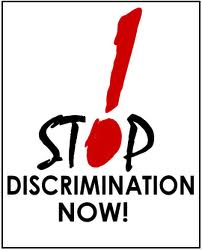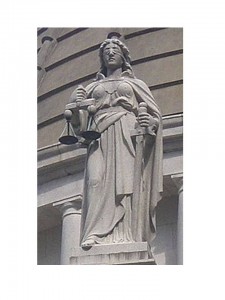Out of the vast number of crimes committed in the United States, few seem to grab the attention of the media and the people as powerfully as sex crimes do. The fear and uncertainty of sex crimes are two of the leading reasons that a sex offender registry was implemented. The Sex Offender Registration is a program instituted by the government to review and monitor people who have been convicted of a sexual abuse crime and have since been released from prison. The sex offender registry has been available to government officials, local law enforcement, and as of 1996 to the general public. Although it is important to protect people, especially children, from the potential dangers of sex offenders, it is also important to review and pay close attention to the methods of that protection because some types of protections such as registering sex offenders can lead to vigilantism and other forms of abuse against the offenders.
The sex offender registry was first instituted in 1947 California for law enforcement to monitor the whereabouts of convicted felons who had committed a sexual crime. It was not until 1994 with the Jacob Wetterling Act that the registry expanded to include all law enforcement agencies across the nation when legislation was passed to require all sex offenders to register with their state’s sex offender registration. In 1996, the sex offender registry gained nationwide public audience through a set of laws based on “Megan’s Law” when the federal government required states to make public the personal information of certain sex offenders.
The idea behind the introduction of the sex offender registry is that it would lessen the amount of sex crimes committed due to public awareness of the presence of known sex offenders. However, Malesky and Keim report, in a study published in Sexual Abuse: a Journal of Research and Treatment which investigates over 100 mental health professionals opinion’s on the sex offender registration websites, that:
Over 80% of the participants in this study do not believe that sex offender registry sites will affect the number of children who are sexually abused each year. Seventy percent of the respondents also believe that a listing of sex offenders on the web will create a false sense of security for parents, and over 60% of the respondents believe that sex offenders who are listed on these sites will become targets of vigilantism in their community. (53)
Considering that the average child molestation is committed by someone the child knows, either a relative, or friend of the family, the notion that the sex offender registration would somehow prevent the majority of molestations against children is faulty logic. Only about ten percent of child molestations are committed by a stranger. One of the intentions of a sex offender registry is to provide law enforcement with a database of knowledge that will assist them in solving future crimes. However, the existence of such a list significantly reduces the likelihood of offender recidivism. Franklin Zimring noted that “if there is no strong tendency of offenders to repeat the same patterns of sex crime . . . then the list of prior sex offenders will prove less efficient in solving new offenses” (145).
There is an argument as to the constitutionality of the sex offender registry. Many people believe that it is unconstitutional to continue punishing a person for a crime he or she has committed after he or she has completed the term of his or her sentencing. The social stigma that goes along with being listed on the sex offender registry is in many cases a lifelong punishment of public ridicule and shame as well as potential vigilantism against the registrant. Some people who hear the term sex offender are engendered with a antipathetic reaction in which they assume the term is meant for a pedophile or rapist. On the contrary, there are many people who have been forced to register as a sex offender who have never committed a violent crime. Prostitution is a crime that can result in a person being listed on the sex offender registry. Public lewdness, as well as consenting public sex can get one listed as a sex offender.
Regardless of the severity of the act committed, supporters of the sex offender registry claim that it is better to deprive the sex offenders of their right to privacy; thus, forcing them to have to relocate if an establishment catering to children should open near their home, and preventing them from participating in any and all activities that might involve children including the sex offenders own children. In opposition, with the vast majority of registered sex offenders having never committed a violent sex crime, or a crime against children, forcing these offenders to have to relocate and or find approved residence is both costly to the offender and the state as well as inhumane toward the offender. It cannot be stressed enough that a sex offender does not always imply a dangerous predator. The typical offender is not a threat to anyone; yet they are subjected to continual ridicule and shame and potential violence from vigilantist even though they themselves have never caused harm to anyone. It is clear that the sex offender registry is in effective and potentially harmful to its registrants who have been forced to subscribe to its pages.
Familywatchdog.us reports that the number of sex offenders in the registry is in excess of five hundred thousand. Many of the people listed in the registry are non-violent offenders. Many teenagers who were caught having sex and because of such tight restrictions placed by the states those teenagers were forced to register as sex offenders. A large number of registrants are streakers, or flashers, whom the psychiatric community have deemed mostly harmless; yet they still end up on the registry. The prevalence of such offenders inflating the number of people that are required to be registered only succeeds in furthering the epidemic of fear that pedophiles are lurking in the shadows waiting for the opportunity to strike.
If the sex offender registry is going to continue to exist in its current ineffective state, the non-violent offenders should be removed as they pose no threat to the people around them. The broad generalization that has been labeled sex offender should be redesigned and narrowed down to categorize the actual dangerous sex offenders, specifically the repeat offenders. The problem with the system is that it cannot distinguish between a repeat offender or a one-time offender. Many sex offenders after having served their time have gone on to lead normal, healthy lives, establishing themselves in the community, founding a family and supporting themselves in the work force.
All that can be undone by the social stigma that surrounds the misconceptions of the term sex offender. Murderers and drug dealers once released from prison have a right to continue on with their lives mostly unmolested by the general public due to their criminal behavior. While it is true that these people are supposed to explain their criminal history when filling out job applications and the like, it is not the same as it is for a sex offender. A person cannot look up another person to see if he or she has ever been convicted of murder or sold drugs or committed a burglary, all of which are dangerous and potentially life threatening actions to the victims. Yet some people whose crime could range from simply being seen nude to teenagers caught having sex, can be marred for life as a sex offender, a term that carries with it a hefty and potentially lifelong condemnation as well as social stigma that can make it hard if not impossible to get a job or establish a permanent home.
Why are sex offenders the only ones who have to register for their crimes? Why not murderers, or drug dealers, or scam artists? If these criminals were to have to register on their particular offense registry, then why not lesser criminals, petty crimes, and misdemeanors? How long until everyone is able to know everything about everyone else’s crimes? Does putting all of these people on a list titled with their crime prevent someone else from committing these crimes? There have been ample studies to show that registration of an offense does not prevent an offender from relapsing, these same studies show that the majority of offenders are not likely to re-offend. One study results showed that:
It was found that 63% of the new sex offenses occurred in the jurisdiction where notification took place, suggesting that notification did not deter offenders or motivate them to venture outside their jurisdictions (where they would be less likely identified) to commit crimes. Based on these findings, the authors concluded that community notification appeared to have little effect on sex offense recidivism (Schram & Milloy, 1995).
Many of the offenders are forced to live only in approved locations away from places that cater to children (even if their offense did not target children) such as schools, day cares, playgrounds, churches, etc. Many offenders have had to relocate because an establishment which caters to children opened up within the restrictive distance to the offender. In some cases the offenders have been unable to vacate the restricted area in time and were arrested for non-compliance, while others have become homeless.
It is apparent that the current sex offender registry has some problems in execution and expectations. There is no empirical evidence that the sex offender registry prevents sex crimes, especially since most sex crimes are committed by someone the victim knows and trusts. How would being on a sex offender registry help in a situation where the victim already knew and trusted his or her attacker? Many people have become falsely secure in the fact that they are safe just because sex offenders are being forced to register.
 In many states, the sex offender registry does not even distinguish between a person who was flashing or streaking and a person who rapes and murders children. Many offenders have lost their jobs or homes because of their registered status. Many argue that it is unconstitutional to continue to punish someone after they have served out their sentence. To be forced to bear the term of sex offender can be a damaging and at times, life threatening stigma for sex offenders, many who are not even violent offenders themselves. Registered sex offenders have a lot of issues to circumnavigate in order to lead a semi-normal life. Aside from finding a place of residence, many are met with open hostility and live under threats and violence once their status is made public. As it stands there are a vast amount of improvements that must be made to the sex offender registry before it will work properly, assuming it ever will.
In many states, the sex offender registry does not even distinguish between a person who was flashing or streaking and a person who rapes and murders children. Many offenders have lost their jobs or homes because of their registered status. Many argue that it is unconstitutional to continue to punish someone after they have served out their sentence. To be forced to bear the term of sex offender can be a damaging and at times, life threatening stigma for sex offenders, many who are not even violent offenders themselves. Registered sex offenders have a lot of issues to circumnavigate in order to lead a semi-normal life. Aside from finding a place of residence, many are met with open hostility and live under threats and violence once their status is made public. As it stands there are a vast amount of improvements that must be made to the sex offender registry before it will work properly, assuming it ever will.
Works Cited.
Family Watchdog. “Offender Counts.” Family Watchdog: Awareness is Your Best Defense. FWD Holdings Incorporated, n.d. Web. 10 Oct. 2010.
Malesky, Alvin, and Jeanmarie Keim. “Mental Health Professionals’ Perspectives on Sex Offender Registry Web Sites.” Sexual Abuse: A Journal of Research and Treatment. 13.1 (2001): 53-63. Web. 10 Oct. 2010. <http://www.springerlink.com/content/t46t1p162365472m/>.
Schram, D., & Milloy, C. D. (1995). Community notification: A study of offender characteristics and recidivism. Olympia, WA: Washington Institute for Public Policy.
Zimring, Franklin E. An American Travesty: Legal Responses to Adolescent Sexual Offending. Chicago, IL: The University of Chicago Press, 2004. Print.
Abusing the Abusers: A Circle of Violence,




wannabeanon
25 Feb 2011While I agree that there are different levels of offenses, I believe, for the most part, that they should all be punished severely. Having had an inside perspective at what a sex offender’s life is really like, I know it is hell, and I know the daily trials and sacrifices that they undertake. I dated a sex offender, for two years. I didn’t find out about it until after we had started dating, and by that time, he had taken control over me. What was the offense? Statutory rape. The girl was underage, but consented, it’s not as if he physically forced anything, but the law is the law, and the fact is, the longer I stayed in that relationship, the more obvious his sexual deviance became. He did rape me, and force me to do things that were very unnatural to me, so it enforced my belief that sex offenders are warped, it goes all the way down to the psychological and chemical levels of their brain… and I, for one, completely stand behind the registry, it allows me to keep tabs on where he is at any point, without ever making contact – not because I give two craps about where he lives, other than the fact that I try to avoid that area of town, in the event our paths may accidentally cross again. Just my $.02.
Justsayin101
25 Feb 2011I agree that the punishment should be and remain as severe. I’m sorry to hear of your bad experiences, I can’t imagine, but glad to hear that you were able to break free of a controlling relationship. I recently watched a episode of Dateline NBC with Chris Hanson – and was simply amazed at just how many sex offenders that are willing to explore and try to get away with breaking this law. Very sick individuals trying to have sex with 12-14 year old girls.
Marcus Rogers
2 Mar 2011@ Wannabeanon: Your $.02 is invaluable; this is exactly the reason this post and others are out here. To show a point of view and to get a discussion about that point of view going. I can understand totally your viewpoint on the registry. However, the scope of my position is not entirely focused on the violent sexual criminals, more it is about refining the registry to “the violent sexual criminals.” As it stands it is not difficult at all to get listed in the sex offender registry.
While I sympathize with you, and agree with your sentiment that violent sex offenders should be monitored and a system should be in place to help protect those people who do live near a violent sex offender, the point I wanted to make is that so many people who are not violent sex offenders are at the mercy of a program which in many cases does not distinguish the violent sex offenders from the non-violent.
There is an emotional charge established with the phrase “Sex Offender” that even the listing of non-violent, does little to alter the way in which a person with that title is perceived.
I do believe violent sex offenders should be monitored in some manner or other. However I also believe that the current system of that monitoring, is flawed and is causing undue stress and harm to the non-violent offenders in that system.